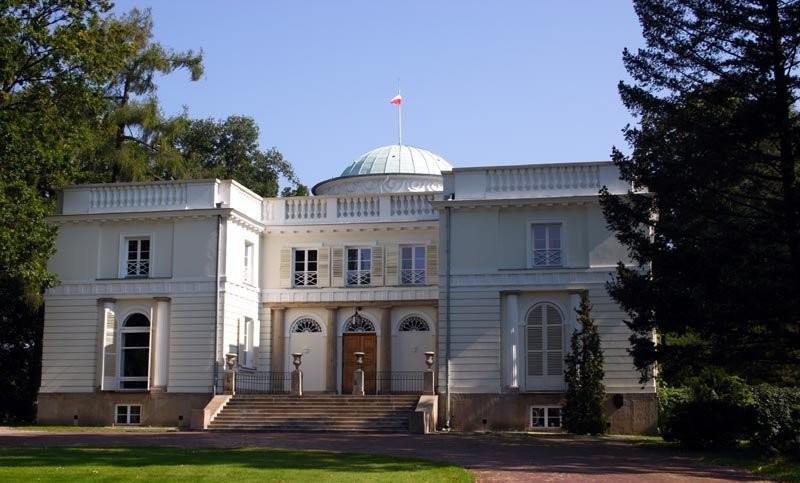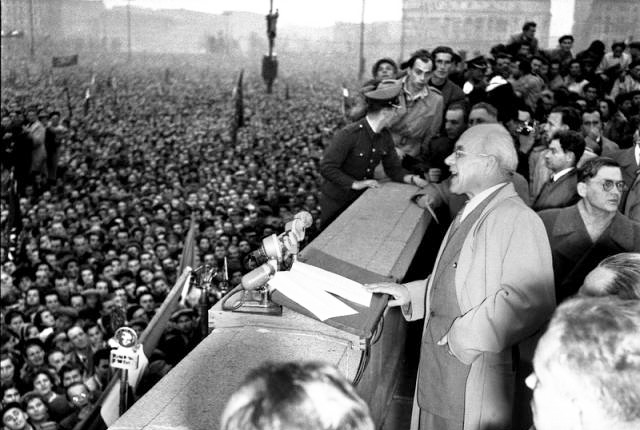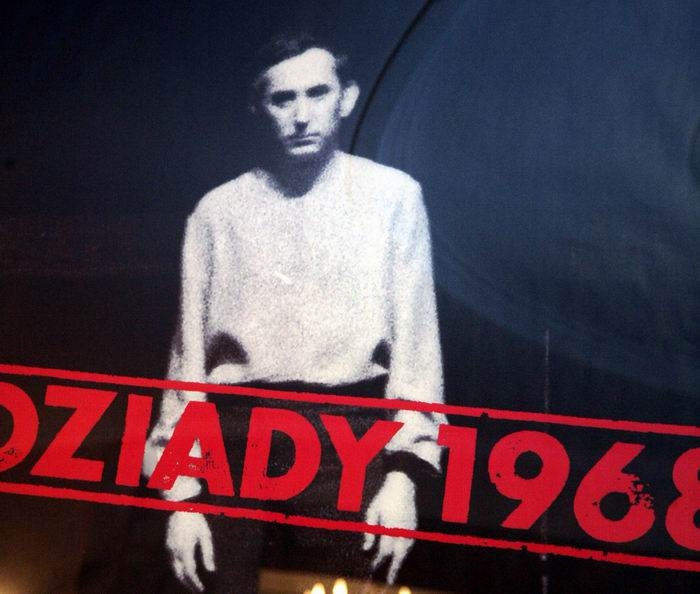|
Witold Jedlicki
Witold Jedlicki (born 9 February 1929 in Warsaw; died 8 September 1995 in Jerusalem) was a Polish sociologist and journalist of Jewish descent, activist of the Crooked Circle Club, and author of ''Chamy i Żydy'' (Oafs and Jews), in which he described the divisions in the communist Polish United Workers' Party (Polish: PZPR), including between the so-called groups of Natolinians and Puławians. See also *1968 Polish political crisis * Roman Zambrowski *Władysław Gomułka Władysław Gomułka (; 6 February 1905 – 1 September 1982) was a Polish Communist politician. He was the ''de facto'' leader of Polish People's Republic, post-war Poland from 1947 until 1948, and again from 1956 to 1970. Born in 1905 in ... References Polish sociologists 1929 births 1995 deaths Journalists from Warsaw Polish emigrants to Israel People associated with Kultura (magazine) {{Poland-bio-stub ... [...More Info...] [...Related Items...] OR: [Wikipedia] [Google] [Baidu] |
Warsaw
Warsaw, officially the Capital City of Warsaw, is the capital and List of cities and towns in Poland, largest city of Poland. The metropolis stands on the Vistula, River Vistula in east-central Poland. Its population is officially estimated at 1.86 million residents within a Warsaw metropolitan area, greater metropolitan area of 3.27 million residents, which makes Warsaw the List of cities in the European Union by population within city limits, 6th most-populous city in the European Union. The city area measures and comprises List of districts and neighbourhoods of Warsaw, 18 districts, while the metropolitan area covers . Warsaw is classified as an Globalization and World Cities Research Network#Alpha 2, alpha global city, a major political, economic and cultural hub, and the country's seat of government. It is also the capital of the Masovian Voivodeship. Warsaw traces its origins to a small fishing town in Masovia. The city rose to prominence in the late 16th cent ... [...More Info...] [...Related Items...] OR: [Wikipedia] [Google] [Baidu] |
Natolinians
The Natolinians, or the Natolinian faction (Polish language, Polish: ''Natolińczycy'', ''frakcja natolińska''), were a grouping within the leadership of the communist Polish United Workers' Party (the ''PZPR''). Formed around 1956, shortly after the 20th Congress of the Communist Party of the Soviet Union, it was named after the palace where its meetings were held, in Warsaw's Natolin Park and Palace, Natolin district. The main opposition to the Natolinians were the reformist Puławianie, Puławians, who included many PZPR members of History of the Jews in Poland, Jewish extraction. The Natolinians opposed the post-Stalinism, Stalinist liberalization program (the Polish October "thaw") and, as part of their strategy to seek power, voiced simplistic nationalist and anti-Soviet slogans. The best-known Natolinians included Franciszek Jóźwiak, , Zenon Nowak, Aleksander Zawadzki, Franciszek Mazur, , Kazimierz Mijal, Władysław Dworakowski, and Hilary Chełchowski. The Natolinian f ... [...More Info...] [...Related Items...] OR: [Wikipedia] [Google] [Baidu] |
Journalists From Warsaw
A journalist is a person who gathers information in the form of text, audio or pictures, processes it into a newsworthy form and disseminates it to the public. This is called journalism. Roles Journalists can work in broadcast, print, advertising, or public relations personnel. Depending on the form of journalism, "journalist" may also describe various categories of people by the roles they play in the process. These include reporters, correspondents, citizen journalists, editors, editorial writers, columnists, and photojournalists. A reporter is a type of journalist who researches, writes and reports on information in order to present using sources. This may entail conducting interviews, information-gathering and/or writing articles. Reporters may split their time between working in a newsroom, from home or outside to witness events or interview people. Reporters may be assigned a specific beat (area of coverage). Matthew C. Nisbet, who has written on science communication, ... [...More Info...] [...Related Items...] OR: [Wikipedia] [Google] [Baidu] |
1995 Deaths
This is a list of lists of deaths of notable people, organized by year. New deaths articles are added to their respective month (e.g., Deaths in ) and then linked below. 2025 2024 2023 2022 2021 2020 2019 2018 2017 2016 2015 2014 2013 2012 2011 2010 2009 2008 2007 2006 2005 2004 2003 2002 2001 2000 1999 1998 1997 1996 1995 1994 1993 1992 1991 1990 1989 1988 1987 1986 Earlier years ''Deaths in years earlier than this can usually be found in the main articles of the years.'' See also * Lists of deaths by day * Deaths by year (category) {{DEFAULTSORT:deaths by year ... [...More Info...] [...Related Items...] OR: [Wikipedia] [Google] [Baidu] |
1929 Births
This year marked the end of a period known in American history as the Roaring Twenties after the Wall Street Crash of 1929 ushered in a worldwide Great Depression. In the Americas, an agreement was brokered to end the Cristero War, a Catholic Counter-revolutionary, counter-revolution in Mexico. The Judicial Committee of the Privy Council, a British high court, ruled that Canadian women are persons in the ''Edwards v. Canada (Attorney General)'' case. The 1st Academy Awards for film were held in Los Angeles, while the Museum of Modern Art opened in New York City. The Peruvian Air Force was created. In Asia, the Republic of China (1912–1949), Republic of China and the Soviet Union engaged in a Sino-Soviet conflict (1929), minor conflict after the Chinese seized full control of the Manchurian Chinese Eastern Railway, which ended with a resumption of joint administration. In the Soviet Union, General Secretary of the Communist Party of the Soviet Union, General Secretary Joseph S ... [...More Info...] [...Related Items...] OR: [Wikipedia] [Google] [Baidu] |
Polish Sociologists
Polish may refer to: * Anything from or related to Poland, a country in Europe * Polish language * Polish people, people from Poland or of Polish descent * Polish chicken * Polish brothers (Mark Polish and Michael Polish, born 1970), American twin screenwriters * Kevin Polish, an American Paralympian archer Polish may refer to: * Polishing, the process of creating a smooth and shiny surface by rubbing or chemical action ** French polishing, polishing wood to a high gloss finish * Nail polish * Shoe polish * Polish (screenwriting), improving a script in smaller ways than in a rewrite See also * * * Polishchuk (surname) * Polonaise (other) A polonaise ()) is a stately dance of Polish origin or a piece of music for this dance. Polonaise may also refer to: * Polonaises (Chopin), compositions by Frédéric Chopin ** Polonaise in A-flat major, Op. 53 (, ''Heroic Polonaise''; ) * Polon ... {{Disambiguation, surname Language and nationality disambiguation pages ... [...More Info...] [...Related Items...] OR: [Wikipedia] [Google] [Baidu] |
Władysław Gomułka
Władysław Gomułka (; 6 February 1905 – 1 September 1982) was a Polish Communist politician. He was the ''de facto'' leader of Polish People's Republic, post-war Poland from 1947 until 1948, and again from 1956 to 1970. Born in 1905 in Galicia (Eastern Europe), Galicia, Gomulka was of proletarian origin. A plumber from the age of fourteen, he joined the revolutionary movement, made propaganda in the trade unions and suffered the rigours of the Wincenty Witos, Witos government, then of the Pilsudski dictatorship. When Nazi Germany invaded Poland in 1939, he was imprisoned in Lwow, but was later released. He moved to Warsaw and became one of the most energetic organisers of the resistance against the Nazis. In 1943, he became the leader of the left-wing resistance fighters, the general secretary of the underground workers' party. When Poland was occupied by the Red Army, he collaborated with the Lublin government, formed by the Soviets with the Polish Bolesław Bierut, Bie ... [...More Info...] [...Related Items...] OR: [Wikipedia] [Google] [Baidu] |
Roman Zambrowski
Roman Zambrowski (15 July 1909 – 19 August 1977) was a Polish communist politician. Career Zambrowski was born into a Jewish family in Warsaw. He was a member of the Communist Party of Poland (1928–1938) and of the Central Committee of the Young Communist League of Poland (1930–1938). During World War II in the Soviet Union, he was one of the main organisers and leaders of the Union of Polish Patriots (ZPP) from 1943 and of the Central Bureau Communists of Poland (CBKP) in 1944. He was the head of the Political and Educational Leadership of the First Polish Army (1944–1945). From 1944, Zambrowski was a member and one of the leaders of the Polish Workers' Party (PPR) and then, from 1948 to 1968, of the Polish United Workers' Party (PZPR). He was in the PZPR's Central Committee (1948–1964) and held the office of the secretary of the Central Committee (1948–1954 and 1956–1963). He was in the PZPR's Politburo from 1948 to 1963. In 1956, he was a leader of the f ... [...More Info...] [...Related Items...] OR: [Wikipedia] [Google] [Baidu] |
1968 Polish Political Crisis
A series of major student, intellectual and other protests against the ruling Polish United Workers' Party of the Polish People's Republic took place in Poland in March 1968. The crisis led to the suppression of student strikes by security forces in all major academic centres across the country and the subsequent repression of the Polish dissident movement. It was also accompanied by mass emigration following an antisemitic (branded "anti-Zionist") campaign waged by the minister of internal affairs, General Mieczysław Moczar, with the approval of First Secretary Władysław Gomułka of the Polish United Workers' Party (PZPR). The protests overlapped with the events of the Prague Spring in neighboring Czechoslovakia – raising new hopes of democratic reforms among the intelligentsia. The Czechoslovak unrest culminated in the Warsaw Pact invasion of Czechoslovakia on 20 August 1968.Monika Krawczyk (March 2013)Nie zapomnę o Tobie, Polsko! (I will not forget you, Poland). Forum Żyd ... [...More Info...] [...Related Items...] OR: [Wikipedia] [Google] [Baidu] |
Puławians
The Puławians, or the Puławy faction (Polish: ''Puławianie'', ''frakcja puławska''), as they came to be informally dubbed, comprised one of two principal communist groupings in Stalinist Poland which – in the spring of 1956, following the death of Bolesław Bierut – vied for power within the leadership of the Polish United Workers' Party (the ''PZPR''). The Puławians were known, during Poland's destalinization process, as reformists. The other – a hardliner – grouping were dubbed the Natolinians (''Natolińczycy''), or the Natolin faction. The Puławy faction included many communists of Jewish extraction Among the most prominent were Roman Zambrowski and Leon Kasman. Others included Stefan Staszewski and Adam Schaff. However, the Puławians also included prominent party and state functionaries of Polish ethnicity such as Edward Gierek, Piotr Jaroszewicz, Henryk Jabłoński, Mieczysław Rakowski, Andrzej Werblan, Janusz Zarzycki, Władysław Matwin, Adam Rapack ... [...More Info...] [...Related Items...] OR: [Wikipedia] [Google] [Baidu] |
Polish United Workers' Party
The Polish United Workers' Party (, ), commonly abbreviated to PZPR, was the communist party which ruled the Polish People's Republic as a one-party state from 1948 to 1989. The PZPR had led two other legally permitted subordinate minor parties together as the Front of National Unity and later Patriotic Movement for National Rebirth. Ideologically, it was based on the theories of Marxism-Leninism, with a strong emphasis on left-wing nationalism. The Polish United Workers' Party had total control over public institutions in the country as well as the Polish People's Army, the UB and SB security agencies, the Citizens' Militia (MO) police force and the media. The falsified 1947 Polish legislative election granted the Communist Polish Workers' Party (PPR) complete political authority in post- war Poland. The PZPR was founded forthwith in December 1948 through the unification of the PPR and the Polish Socialist Party (PPS). From 1952 onward, the position of "First Secretary ... [...More Info...] [...Related Items...] OR: [Wikipedia] [Google] [Baidu] |
Second Polish Republic
The Second Polish Republic, at the time officially known as the Republic of Poland, was a country in Central and Eastern Europe that existed between 7 October 1918 and 6 October 1939. The state was established in the final stage of World War I. The Second Republic was taken over in 1939, after it was invaded by Nazi Germany, the Soviet Union, and the Slovak Republic, marking the beginning of the European theatre of the Second World War. The Polish government-in-exile was established in Paris and later London after the fall of France in 1940. When, after several regional conflicts, most importantly the victorious Polish-Soviet war, the borders of the state were finalized in 1922, Poland's neighbours were Czechoslovakia, Germany, the Free City of Danzig, Lithuania, Latvia, Romania, and the Soviet Union. It had access to the Baltic Sea via a short strip of coastline known as the Polish Corridor on either side of the city of Gdynia. Between March and August 1939, Poland a ... [...More Info...] [...Related Items...] OR: [Wikipedia] [Google] [Baidu] |







